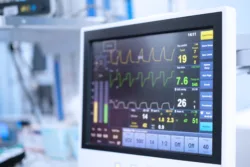What is Moral Reconation Therapy?

Moral Reconation Therapy (MRT) is a type of behavioral therapy aimed at decreasing the likelihood of someone returning to abusing substances or alcohol. It teaches people in the criminal justice system with substance use disorders to focus on the moral aspects of their illness, and the social consequences that may be associated with using drugs or alcohol.
MRT started as a behavioral treatment for offender populations to reduce the likelihood of re-offending. It is now a widely accepted cognitive-behavioral approach that treats substance use disorders, trauma, domestic violence, and more.
Similar to Cognitive Behavioral Therapy (CBT), MRT aims to change thought processes and decision-making associated with addiction and criminal behavior. It utilizes a combination of psychological practices to assist with egocentric behaviors and improve moral reasoning and positive identity. Studies suggest it is effective in reducing recidivism after treatment.
How It Works
Should you decide to try out MRT as part of your substance use treatment, you’ll participate in individual and group counseling. There’s also homework to complete and structured group exercises to engage in. In your workbook, you’ll find 16 steps concentrated on seven cornerstone treatment focuses:
- Building of higher pinnacles of moral reasoning
- Lowering self-destructive tendencies and building your frustration tolerance
- Building a healthy concept of self
- Constructing a positive identity
- Reinforcing healthy habits and behaviors
- Assessing your current relationships
- Coming face-to-face with your current behaviors, attitudes, and beliefs
You’ll meet in a group one to two times per week, and you can complete the program within 24-36 sessions. Frequency of meetings may depend on the institutional setting.
Who is MRT For?
You may wonder if you’re a proper candidate for MRT. Know that it is aimed at specific populations, including:
- Correctional
- Individuals ages 18-55
- Males and females
- Trauma survivors
- Veterans
If you do not have a criminal history, CBT is a similar therapeutic approach that may be ideal for you.
Related Post: Addiction Treatment or Punishment?
Juvenile Drug Courts
Rather than being granted “Evidence-Based Practice Status” from the Substance Abuse and Mental Health Services Administration as it has been with adults, this particular type of therapy is currently classified with a “Promising Practice Status” for juveniles. That said, it has received the “Evidence-Based Practice Status” classification from state departments of human services and state departments of juvenile justice. With that in mind, it’s a good idea to combine MRT with another treatment program backed by evidence that’s aimed specifically at juveniles.
Treatment-Resistant Clients
Something else worth nothing with this therapeutic approach is the fact that it’s aimed at those who have been resistant to similar treatments in the past. This could offer hope if you have enrolled in a number of different treatment or therapy programs to no avail. MRT focuses on treating the whole person morally, socially, and behaviorally. This holistic view could reduce the chance for relapse.
We offer Moral Reconation Therapy at several of our locations, including Pyramid Hillside and Quakertown. Contact our admissions department to learn more about this type of therapy, available in inpatient and outpatient settings.
Moral Reconation Therapy (MRT) is a type of behavioral therapy aimed at decreasing the likelihood of someone returning to abusing substances or alcohol. It teaches people in the criminal justice system with substance use disorders to focus on the moral aspects of their illness, and the social consequences that may be associated with using drugs or alcohol.
MRT started as a behavioral treatment for offender populations to reduce the likelihood of re-offending. It is now a widely accepted cognitive-behavioral approach that treats substance use disorders, trauma, domestic violence, and more.
Similar to Cognitive Behavioral Therapy (CBT), MRT aims to change thought processes and decision-making associated with addiction and criminal behavior. It utilizes a combination of psychological practices to assist with egocentric behaviors and improve moral reasoning and positive identity. Studies suggest it is effective in reducing recidivism after treatment.
How It Works
Should you decide to try out MRT as part of your substance use treatment, you’ll participate in individual and group counseling. There’s also homework to complete and structured group exercises to engage in. In your workbook, you’ll find 16 steps concentrated on seven cornerstone treatment focuses:
- Building of higher pinnacles of moral reasoning
- Lowering self-destructive tendencies and building your frustration tolerance
- Building a healthy concept of self
- Constructing a positive identity
- Reinforcing healthy habits and behaviors
- Assessing your current relationships
- Coming face-to-face with your current behaviors, attitudes, and beliefs
You’ll meet in a group one to two times per week, and you can complete the program within 24-36 sessions. Frequency of meetings may depend on the institutional setting.
Who is MRT For?
You may wonder if you’re a proper candidate for MRT. Know that it is aimed at specific populations, including:
- Correctional
- Individuals ages 18-55
- Males and females
- Trauma survivors
- Veterans
If you do not have a criminal history, CBT is a similar therapeutic approach that may be ideal for you.
Related Post: Addiction Treatment or Punishment?
Juvenile Drug Courts
Rather than being granted “Evidence-Based Practice Status” from the Substance Abuse and Mental Health Services Administration as it has been with adults, this particular type of therapy is currently classified with a “Promising Practice Status” for juveniles. That said, it has received the “Evidence-Based Practice Status” classification from state departments of human services and state departments of juvenile justice. With that in mind, it’s a good idea to combine MRT with another treatment program backed by evidence that’s aimed specifically at juveniles.
Treatment-Resistant Clients
Something else worth nothing with this therapeutic approach is the fact that it’s aimed at those who have been resistant to similar treatments in the past. This could offer hope if you have enrolled in a number of different treatment or therapy programs to no avail. MRT focuses on treating the whole person morally, socially, and behaviorally. This holistic view could reduce the chance for relapse.
We offer Moral Reconation Therapy at several of our locations, including Pyramid Hillside and Quakertown. Contact our admissions department to learn more about this type of therapy, available in inpatient and outpatient settings.







